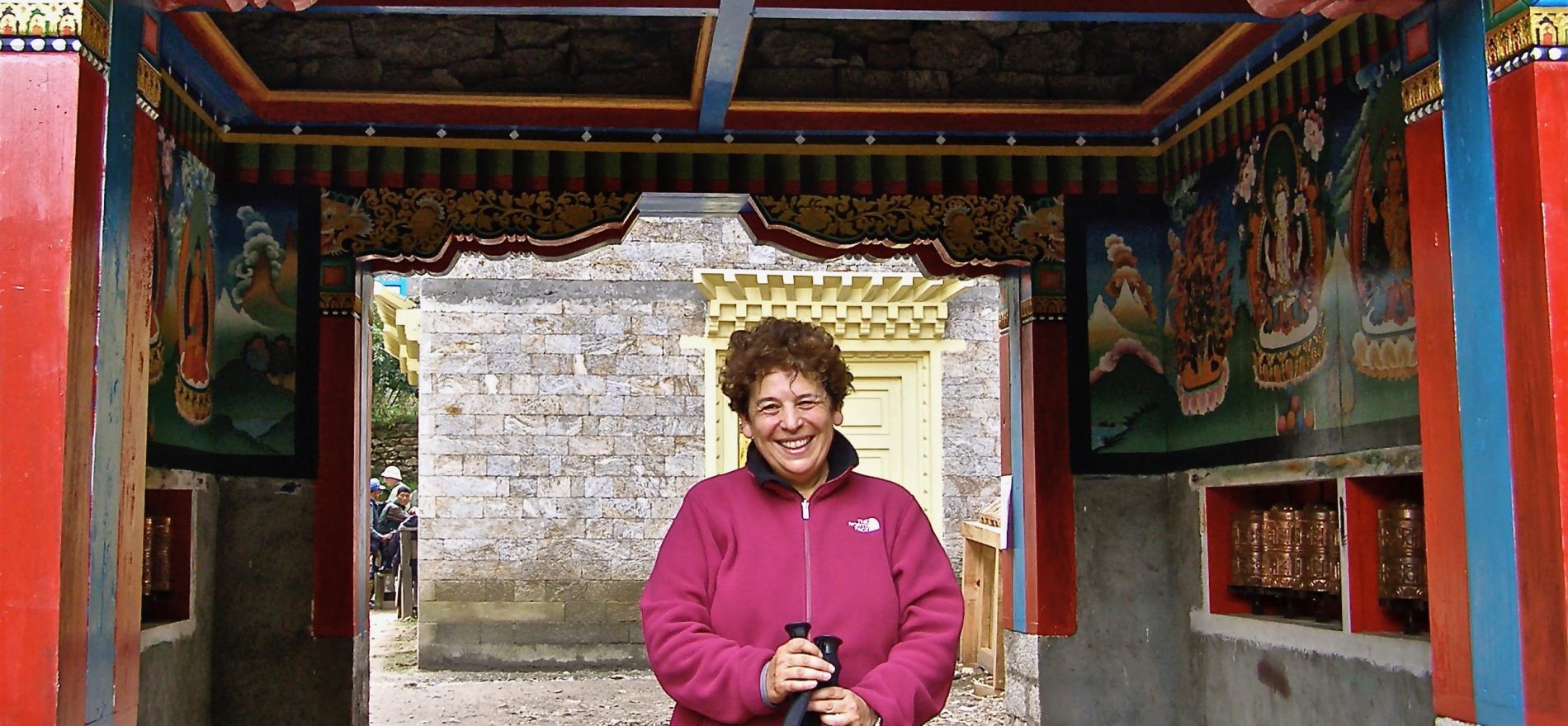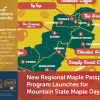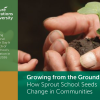Future Generations catches up with an alumni 13 years after she graduated.
By Jesse Mintz
Ellen Romm Lampert left Future Generations University eager to make a difference in communities that straddle the Mexico-New Mexico border. That was back in 2007. Today, she heads Slow Food Sante Fe, a local chapter of an international grassroots movement focused on food literacy, sustainability, traditions, and health.
What happened?
When she enrolled in Future Generations, she’d recently transplanted back to the United States after years spent living in Europe. She soon realized the impact of America’s food system–with a focus on fast and cheap calories that divorce consumers from producers–was having on her health and the health of her community.
Today, she’s on a mission to change the way we produce, eat, share, and think about food.
We caught up with her to learn about how food builds community and how her degree from Future Generations University has helped her succeed. In true Slow Food fashion, she wanted to share stories while sharing a meal. But as she made clear, COVID-19 has disrupted her work as well, so we caught up with her over Zoom from her Sante Fe home.*
Future Generation: What makes an idea worth pursuing?
Ellen Romm Lampert: If you are convinced that your idea is going to be of benefit to the people and the society around you, then the idea is worth pursuing.
I was pushed into a career as a visual artist–and I stayed with it until I was 42 years old. I started looking critically at how I was leading my life, and I had two small children to take care of. That art career certainly wasn’t benefiting me or my children, and I don’t think it was benefitting anyone around us.
I began to look around to see if I could assist in improving anything.
What struck me immediately, when my kids and I moved to the U.S., is how unhealthy the food on offer in the supermarkets was. We had been in Europe for years, and the differences were appalling. The three of us broke out in rashes and got sick from the food we purchased. In Europe I had been a Slow Food advocate on the sidelines and, over the next several years, I became obsessed with the connections between adequate food and adequate health, and began looking for farmers wherever I ended up living.
And now I run Slow Food Santa Fe and Slow Food New Mexico, integral chapters in the international Slow Food movement. I still marvel at how few Americans understand about food policy, the Farm Bill, and the connection between the food they consume and their overall health. So now, in lockdown, I am implementing an online program dealing with a variety of food issues, for anyone who wants to Zoom in.
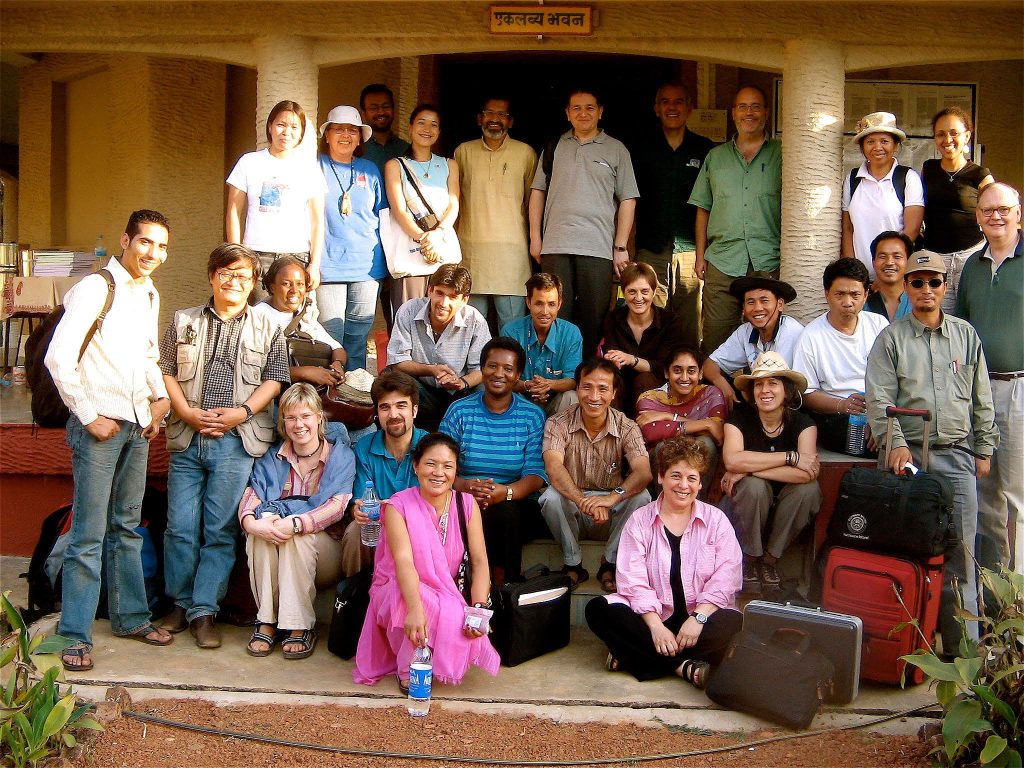
FG: What is one lesson you learned the hard way?
ERL: Being female and trying to affect change in this society is a tough row to hoe. First, I was too young, then I was “older.” So, in either of these iterations, what could I possibly have offered? I have learned this lesson repeatedly. I’m also Jewish (raised Orthodox) and that has led to a lot of exclusion.
It took me until I was 70 years old to sit down and reflect on peoples’ reactions and responses to some of my proposals. And I realized that often I was too foreign or too “other” to be included or taken seriously. The lesson is that we lose out when that happens.
In Slow Food, much, but not all, of the volunteer community is female. So that is one thing we don’t have to worry about. Also, Slow Food, being an international organization, is very inclusive.
FG: What does Slow Food have to do with building community?
ERL: The original Slow Food chapters were called Conviva (which means Living together). Slow Food was begun in Italy, in reaction to McDonald’s trying to put up a franchise on the Spanish Steps, in Rome. The idea was to sit down and eat together communally, to take your time.
I remember the frustration when a Future Generations professor insisted to my class, “We are going to GRAB LUNCH and get moving.” As students, we were all from cultures where we sit together over meals and share ideas. Food is not something to be “grabbed.” Food is health, nutrition, and community. Food exists to sustain life on multiple levels.
Eleven years ago, when I founded “Dinner and a Book” as our monthly Slow Food Santa Fe cornerstone activity, I purposely made it so that participants could come to my home earlier, before dinner, and cook together if they wanted. (And I also built a kitchen where 20 persons can cook together.)
When we are not in lockdown, most of us in Slow Food, around the U.S., put on potluck dinners and events at local restaurants that offer a particular point of view about food. We are a community of food investigators and advocates.
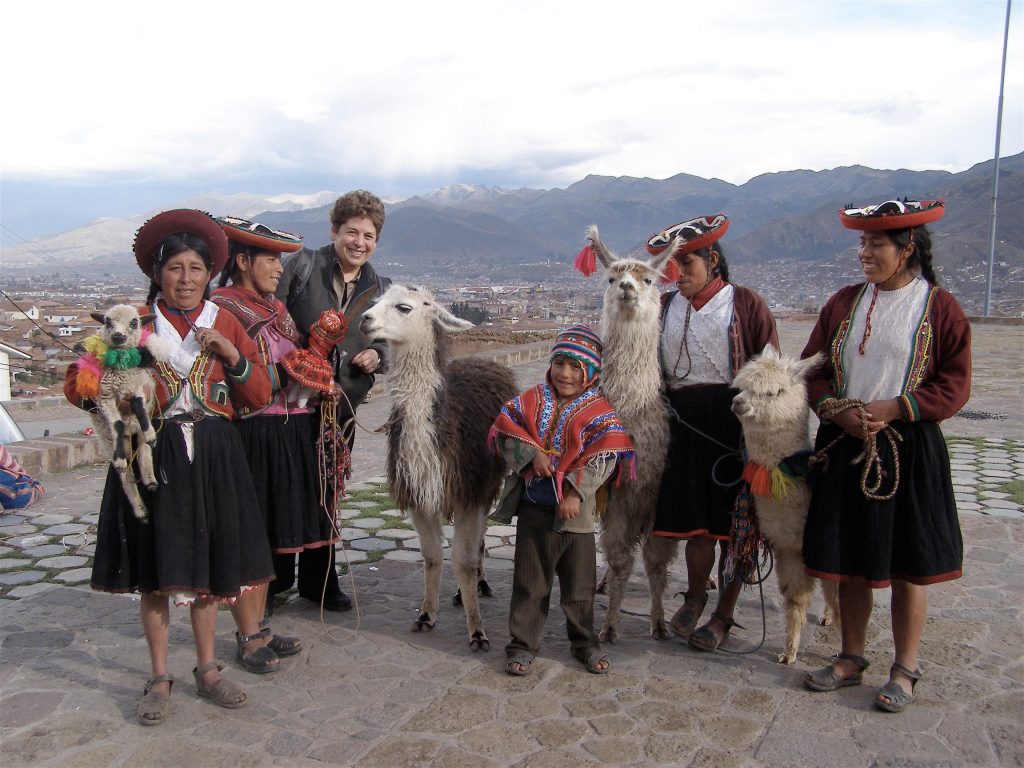
FG: What is the best part of what you do?
ERL: The best part of what I do is connecting people to each other, to their own food traditions, and to each other’s food traditions, in an attempt to keep them healthy and convivial. I enjoy giving people a pathway to learning about how best to feed themselves and their families for maximum and mutual benefit. I enjoy enabling the awareness of a social and historical context for food. Every day I learn more about new avenues and new touchstones for this kind of communication.
*This interview has been edited for length and clarity.
